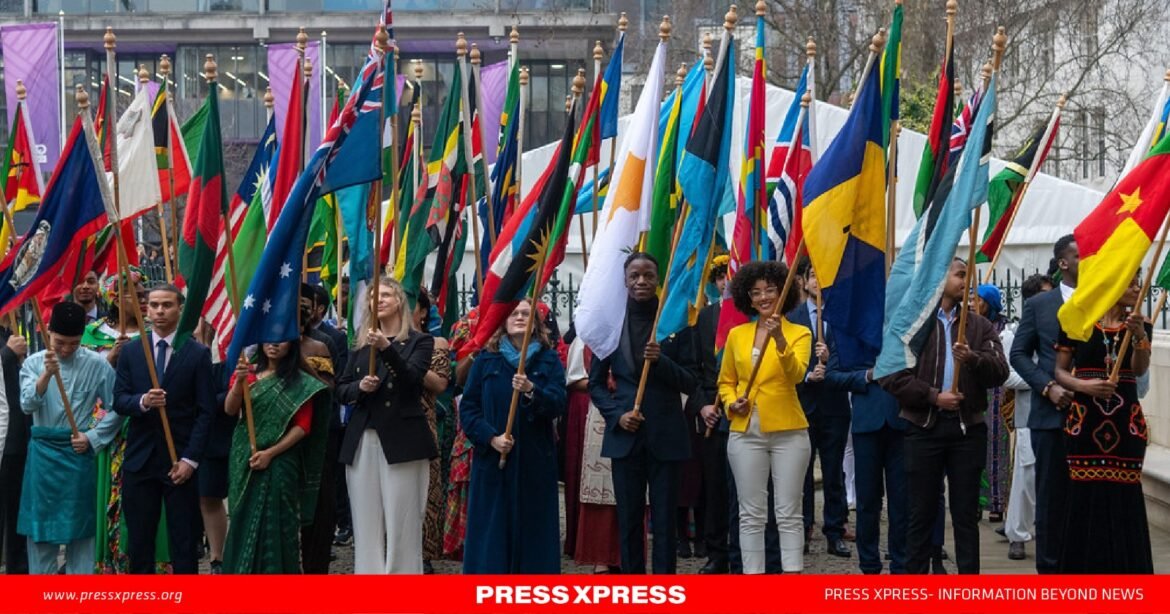In recent years, a growing movement within the Commonwealth has emerged, calling for a reckoning on issues of historical injustice, particularly concerning the transatlantic slave trade. This movement has fueled discussions about reparations, creating tension between Britain and its former colonies, including the 19 African countries that are part of the Commonwealth today. The question arises: are calls for reparations a signal that the Commonwealth’s influence is waning in Africa, or is there more keeping African nations within this legacy organization?
Historical Context and Colonial Legacy
The Commonwealth of Nations, an organization of 56 member states, primarily consists of former territories of the British Empire. Over centuries, Britain’s extensive colonization affected millions in Africa. Between the 15th and 19th centuries, an estimated 12.5 million Africans were forcibly transported across the Atlantic, where they were subjected to slavery in the Americas. Some estimates suggest this number could be as high as 28 million. This brutal history has left enduring scars and continues to influence political and social attitudes within Africa toward Britain.

In recent years, Commonwealth meetings have increasingly become platforms for African leaders to call for reparatory justice. At the 27th Commonwealth Heads of Government Meeting, leaders demanded a “meaningful, respectful, and truthful” discussion on reparations. This insistence on reparations—whether financial, political, or social—stems from a desire to acknowledge and amend the injustices that continue to impact African societies.
The Debate on Reparations and the Commonwealth’s Role
Despite these calls, Britain’s response has been lukewarm. British Prime Minister Keir Starmer and other UK officials argue that reparations need not involve monetary compensation, especially given the global cost-of-living crisis. UK Foreign Secretary David Lammy, for instance, advocated for a focus on “right language” and historical understanding to guide future decisions. He argued that this approach would address existing inequalities without necessarily providing financial restitution.

This stance has frustrated some African leaders, who see the Commonwealth’s lack of substantive redress as emblematic of its broader limitations. According to Professor Khalifa Dikwa from Nigeria, African nations feel coerced into remaining in the Commonwealth despite a lack of tangible benefits. Dikwa argues that the Commonwealth’s trade agreements disproportionately favor Britain, making it difficult for African countries to leverage the organization for meaningful economic growth. He contends, “There is nothing common about the Commonwealth.”
Economic Considerations and Commonwealth Trade Dynamics
One of the primary reasons African nations remain within the Commonwealth is economic opportunity. Trade between Commonwealth countries was estimated at $673 billion in 2019, according to the Commonwealth Secretariat, and intra-Commonwealth trade is projected to surpass $1 trillion by 2030. Commonwealth countries benefit from a 19% trade advantage due to shared language, legal frameworks, and historical ties, which ostensibly reduce trade costs and enhance economic cooperation.
However, these trade benefits are unevenly distributed. Data from the United Nations Conference on Trade and Development (UNCTAD) show that the majority of Commonwealth trade value is concentrated among wealthier countries, including the UK, Canada, Australia, and India. In contrast, African nations, particularly those in sub-Saharan Africa, represent a fraction of total Commonwealth trade. This imbalance has left some African leaders questioning the actual value of Commonwealth membership.

While there is potential for economic collaboration, the reality is that many African countries continue to face barriers to fully benefiting from Commonwealth trade. They struggle with inadequate infrastructure, limited access to technology, and lower bargaining power compared to more developed Commonwealth members. Thus, while the Commonwealth offers opportunities, the structure of these opportunities often reinforces existing disparities.
Democracy, Rule of Law, and Geopolitical Influence
Beyond economics, the Commonwealth claims to promote democratic values, rule of law, and human rights—ideals enshrined in the Harare Declaration. Commonwealth advocates argue that this commitment to democratic principles is crucial for political stability in African nations. For some countries, Commonwealth membership provides an international platform to discuss governance and seek diplomatic support.
Chris Vandome, an international relations expert at Chatham House, notes that the Commonwealth facilitates constructive dialogue on governance and democratization. However, some critics argue that these democratic ideals are inconsistently upheld within the Commonwealth, citing member states with questionable human rights records that remain part of the organization.
For African countries navigating complex regional politics, Commonwealth membership also offers a certain level of geopolitical security. Through the Commonwealth, African nations maintain diplomatic channels with global powers, which can provide leverage in negotiations and broader international relations. Moreover, the Commonwealth’s support network can be valuable in situations where African countries face international crises, such as health emergencies or regional conflicts.
A Complex Decision: Weighing the Pros and Cons
For African nations, leaving the Commonwealth is not a straightforward choice. Despite frustrations over reparations and trade imbalances, the organization does offer some practical benefits. Commonwealth membership can enhance diplomatic influence, create limited economic opportunities, and facilitate dialogue on governance and human rights.
Yet, calls for reparations signal a growing desire within Africa for a reevaluation of the Commonwealth’s purpose and impact. Many African leaders feel that unless the Commonwealth can address issues of historical injustice and economic disparity more equitably, its relevance will continue to decline. A recent Afrobarometer survey found that 67% of Africans believe former colonial powers should pay reparations to countries affected by slavery and colonization. This statistic underscores a broader dissatisfaction with symbolic gestures and a demand for substantive change.
Lastly, the Commonwealth’s future in Africa hinges on Britain addressing historical grievances and fostering equitable relationships. Without substantive change, its relevance may fade, as African nations increasingly seek partnerships beyond colonial legacies.


